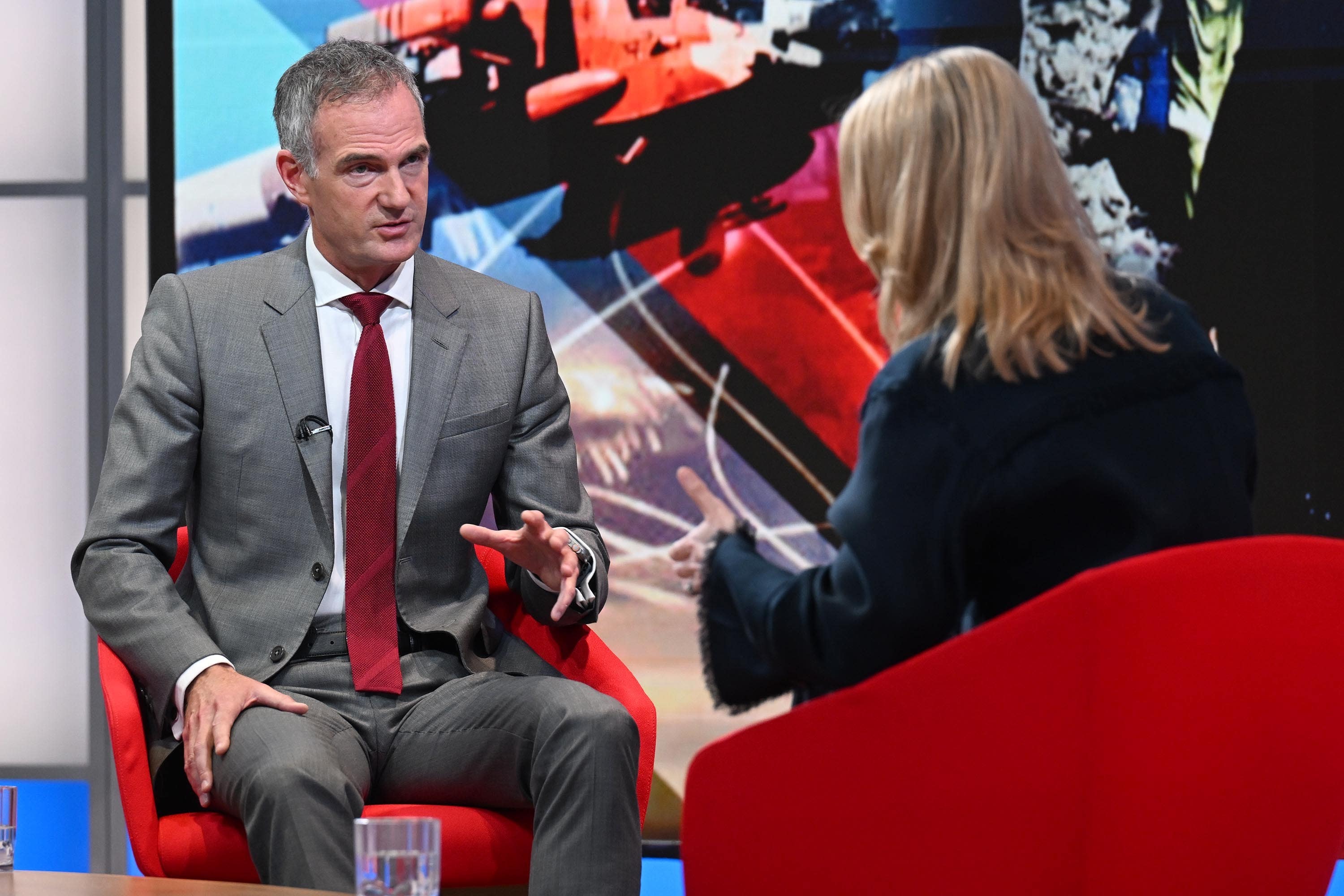UK ‘in lockstep’ with global allies calling for Israeli restraint, says minister
Science and Technology Secretary Peter Kyle also said the UK was ‘on standby’ to remove British nationals from Lebanon.

Your support helps us to tell the story
From reproductive rights to climate change to Big Tech, The Independent is on the ground when the story is developing. Whether it's investigating the financials of Elon Musk's pro-Trump PAC or producing our latest documentary, 'The A Word', which shines a light on the American women fighting for reproductive rights, we know how important it is to parse out the facts from the messaging.
At such a critical moment in US history, we need reporters on the ground. Your donation allows us to keep sending journalists to speak to both sides of the story.
The Independent is trusted by Americans across the entire political spectrum. And unlike many other quality news outlets, we choose not to lock Americans out of our reporting and analysis with paywalls. We believe quality journalism should be available to everyone, paid for by those who can afford it.
Your support makes all the difference.Britain is working “in lockstep” with international allies on calls for Israel to exercise “restraint”, a Cabinet minister has said.
Science and Technology Secretary Peter Kyle said calls for “actions that lead towards a restrained political solution based on a ceasefire” were “unanimous” among the UK’s allies, as he took questions about conflict in the Middle East from broadcasters on Sunday morning.
From the Opposition, Conservative shadow foreign secretary Andrew Mitchell claimed UK recognition of Palestine too early could “look like a reward” for Hamas’s attack on southern Israel one year on.
Mr Kyle told the BBC’s Sunday With Laura Kuenssberg programme: “We are working in lockstep with our international allies.
“We can’t instruct Israel as a sovereign state to do anything, but as key allies we can advise them and the advice is very clear and it is unanimous from our international allies that we must exercise restraint.”
He added: “We are not giving operational instructions to Israel but it is very clear from the words that I am using and the Prime Minister is using, that actions that lead towards a restrained political solution based on a ceasefire … those outcomes do determine the actions that need to be taken that would lead towards it, and I think that speaks for itself.”
The Science and Technology Secretary also said the UK was “on standby” to remove British nationals from Lebanon, where Israel launched a ground invasion earlier this week and hit Beirut’s southern suburbs during airstrikes.
Iranian-backed Lebanese Hezbollah and Israel have exchanged rocket fire and airstrikes over recent months, and Iran fired a barrage of missiles at Israel late on Tuesday.
On evacuations, Mr Kyle pledged: “If the demand is there we will use whatever is needed, whether it’s more chartered flights or whether it’s the military.”
The UK has chartered a flight to leave Beirut-Rafic Hariri International Airport in Lebanon on Sunday, with “no more scheduled” departures.
Asked about the conflict, Mr Mitchell told the BBC’s Sunday With Laura Kuenssberg programme: “Britain has made it clear, the last government made it clear and so has this Government, that we will recognise the Palestinian state but at the right time.
“And it shouldn’t be at the beginning of that process which would look like a reward for the slaughter that was perpetrated just a year ago.”
The shadow foreign secretary had earlier said: “It is a very dangerous crisis in a world that in recent years has become more dangerous than at any time in our lifetime.
“But I think if you focus on what is happening in Lebanon, you see that Israel absolutely has the right of self-defence.
The right approach is not a ceasefire, actually. The right approach is for Hezbollah and its Iranian masters to abide by United Nations Security Council resolution 1701, and pull back behind the Litani River
“No government would allow an internationally proscribed terrorist organisation to sit there lobbing rockets over the border and moving its populations, killing its population – more than 60,000 Israelis have had to move south.
“And the right approach is not a ceasefire, actually. The right approach is for Hezbollah and its Iranian masters to abide by United Nations Security Council resolution 1701, and pull back behind the Litani River, and that would end the conflict that’s taking place in Lebanon.”
Hamas-led militants killed 1,200 people in the October 7 attack and took another 250 hostage. Around 100 remain captive.